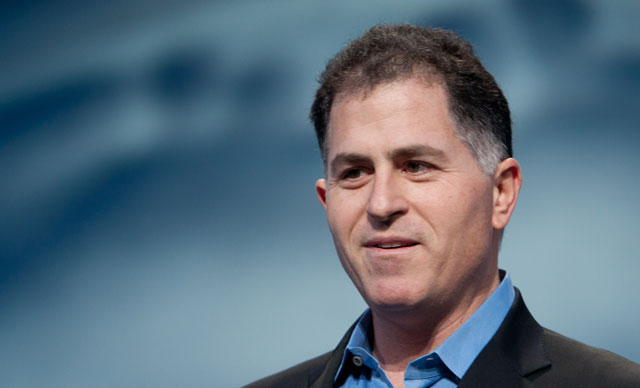 Dell is about to spend US$67bn buying a company that many people have never even heard of — EMC. It’s the largest acquisition of a technology company in history. To put it bluntly, Dell is gambling its entire future on this one deal.
Dell is about to spend US$67bn buying a company that many people have never even heard of — EMC. It’s the largest acquisition of a technology company in history. To put it bluntly, Dell is gambling its entire future on this one deal.
Dell wants EMC mainly because of one of its VMware subsidiary, whose software is popular with the people who run large corporate data centres. Using a technology called virtualisation, VMware makes fleets of thousands of powerful computers, known as servers, more efficient and easier to manage.
VMware has long been a pioneer and market leader in virtualisation, and its foresight has paid enormous dividends. While PC manufacturers, including Dell, have suffered a decade-long slump in sales, anything connected with the server market has boomed.
This is true of Dell’s own server business. Although the company no longer reports its earnings publicly (it went private in 2013), historical reports show its “Enterprise” division, which makes servers, growing strongly.
EMC’s core business, manufacturing devices that store huge amounts of data, is also highly complementary to Dell’s new strategy. These specialised storage appliances are a mainstay of the same data centres that Dell and VMware are targeting with their products.
EMC and VMware have a sex appeal that Dell has lacked for years. They offer market share in two of the hottest trends in IT: big data and cloud computing. These may sound like empty buzzwords, but the growth in earnings is very real.
So far, so complementary. Except that the sex appeal and growth in these new markets makes them increasingly competitive. EMC has been struggling to grow for the last three years, and many of its acquisitions have yet to bear fruit.
VMware is facing equally stiff competition from other cloud computing players. While it specialises in the “private cloud” — large companies that virtualise their own data centres — much of the real growth is in the “public cloud”, which is dominated by giants like Google, Amazon and Microsoft.
To make matters worse, these giants make their own hardware and write their own software. They have no use for any of Dell’s services. Organisations of all sizes are choosing the public cloud over the expense of managing their own data centres.
Treating computing as a metered utility, which can be switched on and off as needed, is enticing to business owners tired of shelling out to buy equipment that quickly becomes obsolete, and requires constant maintenance.
In that context, Dell’s future is far from certain. Google and Amazon are an order of magnitude bigger and meaner than Dell, and employ some of the world’s most talented technologists.
One of VMware’s most promising subsidiaries, Pivotal, focuses on providing cloud services to corporations, and offers a compelling mix of the benefits of both private and public cloud. It is enjoying some success, but it has an uphill battle against its competitors in the public cloud.

The scale at which these competitors operate drives down the cost of their services to levels at which few others can compete. The enterprise market, Dell’s bread and butter, is merely a cherry on the cake for these giants. They can undercut Dell at every turn and still come out on top.
But it’s the sheer size of this deal that is the most troubling aspect. When Dell de-listed in 2013 it was worth around $22bn — a fraction of its former glory of $91bn in 2005. In 2012, it earned $3,5bn on revenues of $62bn, a return of around 5%.
In that context, $67bn is an enormous bet with someone else’s money. Even if we are charitable and assume Dell has increased its profitability by 50% since it went private, it will take more than a decade just to pay down the $50bn in debt incurred on this deal. Adding EMC’s profits of $2,7bn helps the cause, but it remains a very risky deal.
Michael Dell, the company’s founder and CEO, has never feared a challenge. Two decades ago he was the world’s youngest billionaire, having built a company that changed the entire PC market. While those glory days may be over, Dell is still a force to be reckoned with.
You have to admire Dell’s spirit. Rather than clinging to its old business, it is striking out for new territory. This gamble has enormous upside for both Dell and the markets it serves. Costs will be lowered, and value unlocked.
But it will not be easy going. Saddled with that much debt, and facing such strong headwinds, both Dell and its new acquisitions will need to raise their game. Gentlemen, start your engines.

